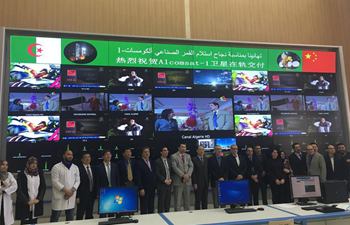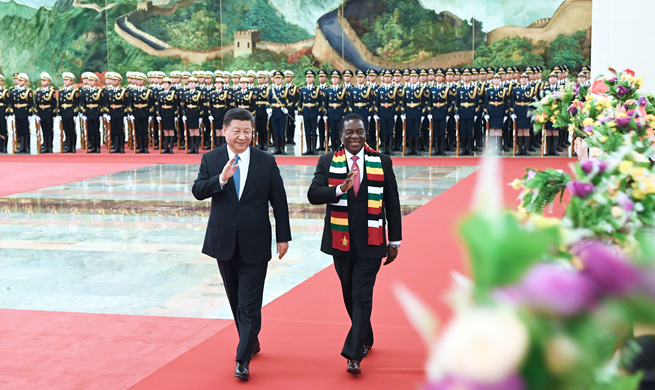WASHINGTON, April 3 (Xinhua) -- The Office of U.S. Trade Representative (USTR) on Tuesday published a proposed list of Chinese goods subject to additional 25 percent tariffs amid strong opposition from China and U.S. business groups.
The proposed list covers approximately 1,300 products imported from China, including industries such as aerospace, information and communication technology, robotics, and machinery, the USTR's Office said in a statement, noting they're worth approximately 50 billion U.S. dollars of annual trade value.
China has stressed that it's ready to take any necessary measures to defend its legitimate interests, while hoping to properly handle the trade dispute with the United States through dialogue and consultation.
"We don't want a trade war, but we are not afraid of it. If someone insists on starting a trade war, we will fight till the end," Chinese Foreign Ministry spokesman Geng Shuang said Tuesday.
The United States should stay rational, listen to calls from business communities and common people, discard unilateralism and trade protectionism, address the dispute through dialogue and consultation, and work with China for a healthy and steady development of bilateral trade to benefit both peoples, said the spokesman.
The proposed tariff list is based on a so-called Section 301 investigation into alleged Chinese intellectual property and technology transfer practices, launched by the Trump administration in August 2017.
Now it will undergo further review in a public notice and comment process, including a hearing, before the USTR issues a final determination on the Chinese products subject to additional tariffs, according to the USTR's Office.
Business groups from China and the United States in recent weeks have warned the Trump administration not to move forward its tariff plan on Chinese imports, as it would raise the costs for American consumers and companies as well as having a negative effect on the financial markets.
"Imposing taxes on products used daily by American consumers and job creators is not the way" to address trade issues between the U.S. and China, Myron Brilliant, executive vice president and head of international affairs at the U.S. Chamber of Commerce, said Tuesday in a statement.
"The U.S. Chamber looks forward to working with the administration throughout the comment period to make the business community's voice heard on the U.S.-China economic relationship," Brilliant said.
U.S. Trade Representative Robert Lighthizer said last week that it would go through a 60-day comment period after the administration released the proposed tariff list and "there's hope" that trade talks between the United States and China could lead to a fruitful outcome.
While the United States and China have two "very different" economic systems, "it's very possible" that the U.S.-China trade relationship could end up in "a good place" after overcoming "a series of difficulties" over many years, Lighthizer said in an interview with CNBC.

















